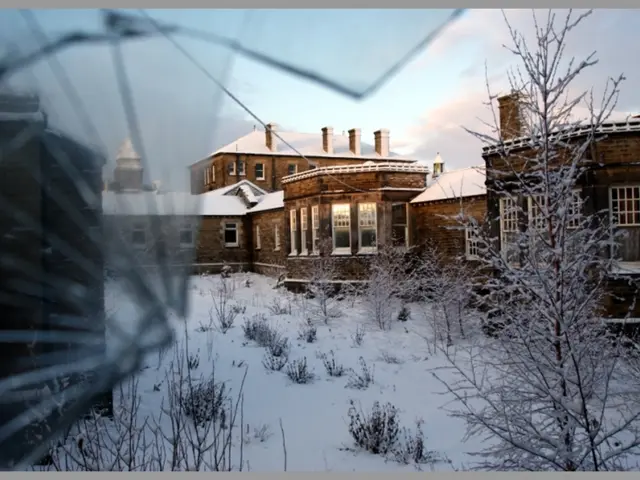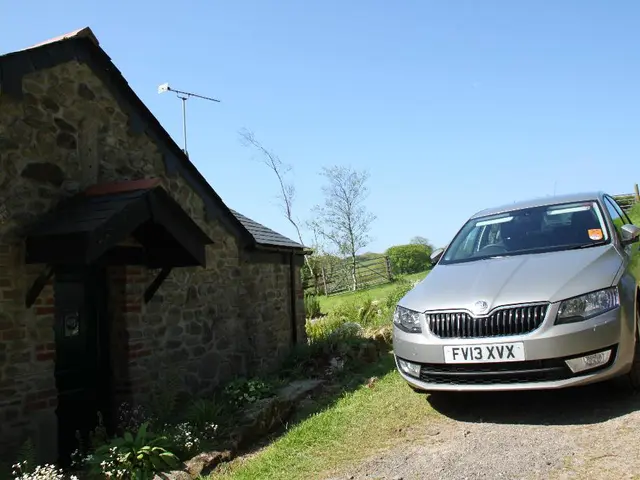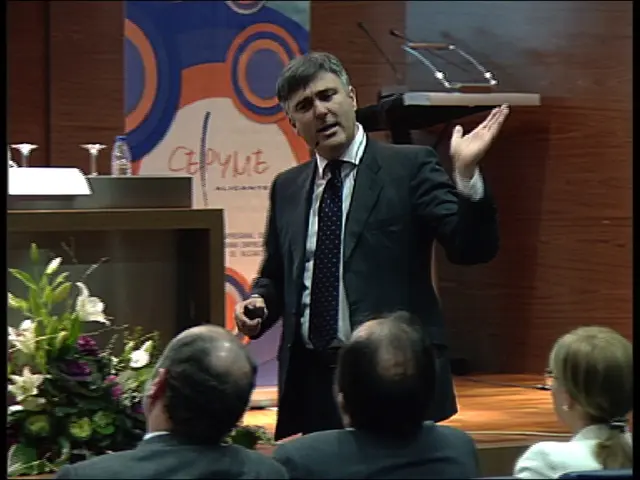Altering the strategy for broadening the electrical grid's reach may yield enormous financial benefits.
Say Goodbye to Buried Power Lines: A New Perspective on Germany's Power Grid Expansion Might Save a Fortune
Germany's power grid expansion might be heading for a change that could save up to 20 billion euros, according to Tennet, a power grid operator. Tim Meyerjürgens, CEO of the company, recently stated, "For a long time, we've called for replacing the priority given to underground cables in DC projects with a focus on overhead lines. This current opportunity to restart network expansion project approvals could be our chance to make the change to overhead lines consistently."
The OstWestLink, SuedWestLink, and NordWestLink projects stand to gain approximately 16.5 billion euros in savings by switching from underground to overhead lines, according to Meyerjürgens. This adjustment could lead to a reduction of network charges by about one cent per kilowatt hour, easing the financial burden on both private consumers and industries.
Economy Overabundance of Power: A Double-edged Sword "On sunny holidays, the power grid operates at maximum capacity"
Authorities emphasized that the potential savings on the new lines come with a price, as they would cause delays in the planning process of initially underground-planned projects. A representative from the Federal Network Agency noted, "While the shift to overhead lines could save costs, it's essential to keep in mind that this move would postpone the initial planning of these projects."
To Pole or Not to Pole? Breaking Free from the Earth's Grip
Germany's expansion of renewable energy infrastructure necessitates the installation of new power lines to transport wind power produced primarily in the north to major consumption hubs in the south. Since 2016, priority has been given to underground cables for large "power highways" as a way to increase acceptance of the network expansion in the population, owing to concerns about "monster trasses" or unsightly power lines.
Economy Fossil Fuels Take Command: Coal and Gas Prove Dominant in First Quarter
A joint paper from transmission network operators Tennet, TransnetBW, and 50Hertz reveals that this prioritization of underground lines hasn't resulted in the anticipated increase in public acceptance. The three companies suggest a shift in approach. The coalition agreement between CDU, CSU, and SPD also advocates for implementing new high-voltage direct current transmission lines (HVDC) as overhead lines "where possible." This approach will take into account affected regions, aiming to make the network expansion more efficient.
A spokesperson from the Federal Ministry of Economics and Energy mentioned that a review process will be conducted by the summer of 2025, examining factors such as power demand, supply security, network expansion, and renewable energy expansion. The results will be considered when making decisions regarding future HVDC implementations and their methods.
Source: ntv.de, lme/dpa
- Power Supply
- Power Price
- Power Grid
Additional Insights:While overhead lines generally prove cheaper to install and maintain due to simpler construction processes and easier accessibility for maintenance purposes, Germany's emphasis on environmental protection and aesthetics might present challenges to their wider adoption. Another factor to consider is the potential need to address environmental and aesthetic concerns related to the use of overhead lines. In parallel, the technical feasibility of overhead lines for urban areas is questionable due to safety and aesthetic issues. Thus, striking a balance between economic benefits and the environment becomes crucial when making decisions regarding the use of overhead lines.
[1] "Power lines in Germany: How much power should be underground?" - Merkur.de, accessed May 8, 2023[2] "Germany Energy Transition: 10 Facts About the Renewable Energy Sources Act (EEG)" - AllAboutBiomass.com, accessed May 8, 2023[3] "Transitioning to renewable energies: New solutions for efficient power grid expansion" - Tennet.eu, accessed May 8, 2023
- The community policy and employment policy of the power grid operators may need to adjust in light of the shift towards overhead lines, as this change could create job opportunities in the construction and maintenance sectors related to power grid expansion.
- In the context of power grid expansion in Germany, the finance and energy sectors are likely to influence each other, as the decision to prioritize overhead lines could lead to significant savings for both industries, ultimately alleviating the financial burden on private consumers and various industries. Meanwhile, the industry's reliance on energy could also impact the country's overall energy policy and renewable energy sources, particularly in the power generation sector.








